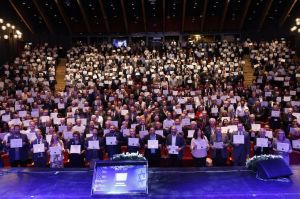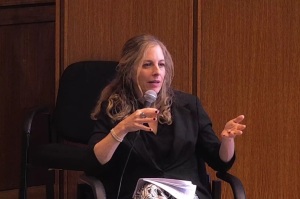Formerly Detained Eritrean Christians Expose Harsh Treatment
After five months in a tiny pitch-black cell, Hzkias, an Eritrean Christian jailed for his faith, said he "looked like another creature."
"My hair and nails were long. My body color was yellow," said the former prisoner, to U.K.-based Release International.
Hzkias, whose name has been changed for security reasons, was chained and kept in solitary confinement during his time in the Eritrean prison. Many prisoners, he recalled, had lost their mind after a few weeks living in such conditions.
After Hzkias was let out of his cell, he was caught handing out pages from the Bible and was brutally beaten by prison guards with batons. Although his leg was severely swollen, authorities had refused to give him medication.
"It's by God's grace and mercy that this body is now able to work properly," he said.
Hzkias is among several persecuted Eritrean Christians who shared their testimony in the latest issue of Release magazine this week. The accounts were gathered during a recent fact-finding visit to refugee camps with Eritrean Christians.
Some 160,000 Eritreans have escaped to neighboring Sudan, over 20,000 have fled to Ethiopia, and several thousands have attempted to cross the Red Sea to Yemen.
"Christianity in Eritrea is very hard," said Essay, a former youth pastor from the capital Asmara who is a refugee in Ethiopia, to Release. "All the senior pastors are in prison, with no attempt to bring them to the court for any reason. Simply they are put in jail. And all the Christians in Eritrea are suffering."
Essay was himself jailed for 11 months. He described his prison in Asmara, the capital city, as "simply like living in an open toilet." He said he almost died while being transferred to Wi'a on the Red Sea coast because of the lack of medication, food, and cold water along with the intense heat.
"I am grateful that God has given me a second chance," Essay said. "God made a way out."
In 1993, Eritrea installed its first president after a bitter struggle with the previous communist regime. Initially there were high hopes of a new democratic government, but those hopes were quickly dashed when former freedom fighter President Isaias Afewerki turned into a paranoid tyrant.
Authorities arrested citizens that criticized the government, withdrew the licenses of the country's independent newspapers and arrested journalists. The arrested journalists and others detained have never been given a trial and are suspected to still be in prison today.
A recent report from Human Rights Watch has described Eritrea as "one giant prison."
Then in 2002, the government announced that it would only recognize three churches: the Orthodox Church of Eritrea, the Roman Catholic Church, and the Lutheran-affiliated Evangelical Church of Eritrea.
Any other church would be considered illegal and must be closed.
There are many reports of authorities raiding Christian wedding ceremonies and arresting the guests as well as the bride and groom. Government personnel have also raided house church gatherings and many church leaders have been arrested.
At least 2,000 Christians are currently in prison simply because of their faith.
"I don't know why the government is doing this to its citizens," Essay said. "But we have heard that the government says that the Christians are CIA agents, they are supported by America, for the destruction of the nation, something like that."
Among the many torture tactics used by Eritrean authorities include detaining Christians in large metal shipping containers where they are at the mercy of unbearable heat, disease, and mental distress.
"The shipping containers are not very big, only 20 feet long, and many of them with around 15-20 people inside," said Alem, a skilled military soldier who chose to be imprisoned rather than renounce his Christian faith.
"They normally allowed us out twice a day to go to the toilet. The rest of the time we weren't allowed out. It was very difficult, especially if you were sick or had diarrhea."
Alem recalled the case of one prisoner who was a mother with a seven-month-old baby. The guards made a pen for the baby and left the child unattended all day under the heat of the sun. The mother was forced to work within hearing range of her baby and would weep when she could hear the child cry but could not do anything.
"The government has imprisoned Christians, they are torturing Christians, they are killing Christians," said Hanibal, an Eritrean Christian activist who is documenting the persecution of believers. "Christians are treated like animals."
Release encourages concerned Christians to pray for the persecuted Eritrean Christians, to sign a petition calling for Eritrea to respect religious freedom, to donate to Release ministry so it can continue to support Christians in Eritrea, and to participate in the International Day of Prayer for the persecuted church in November.
On the Web: www.realeaseinternational.org



























